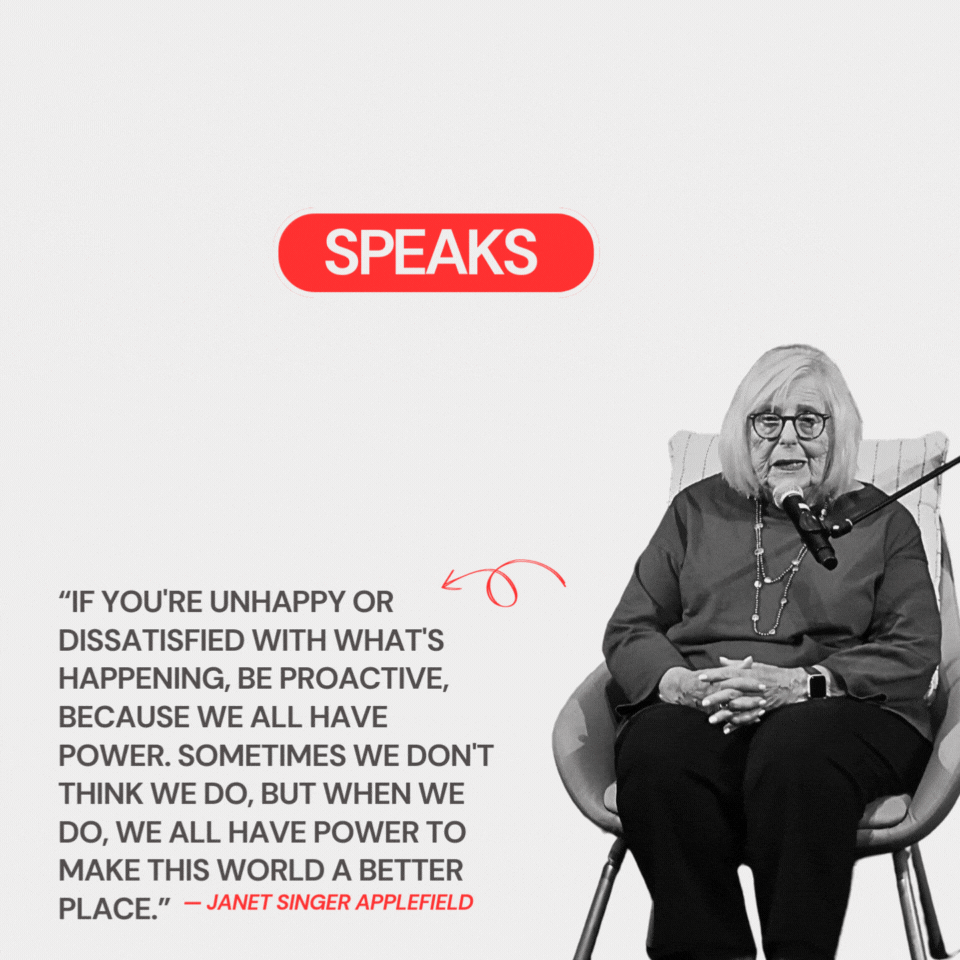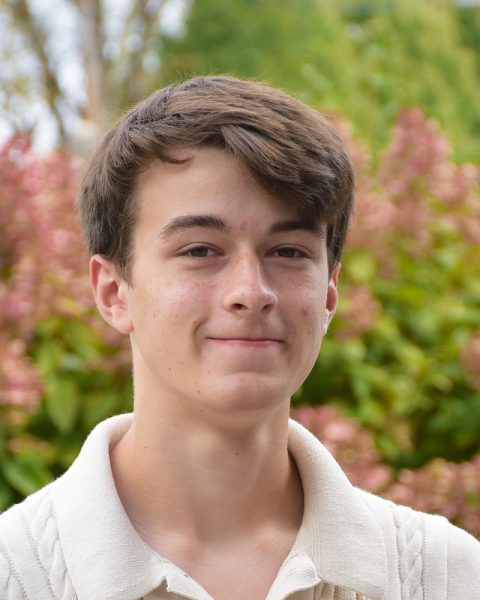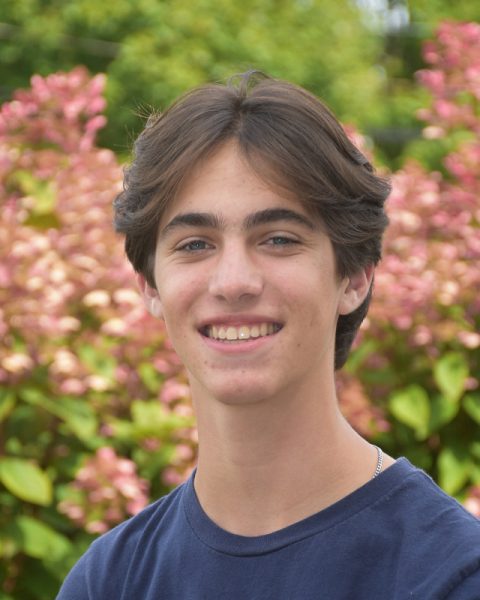
Janet Singer Applefield, 90, shared her courageous story of survival as a Jewish child during the Holocaust, speaking to Middle and Upper School students during Tuesday’s special assembly.
Born in Krakow, Poland, Applefield was just four years old when Germany invaded in 1939, thrusting her from an idyllic childhood into the horrors of Nazi-occupied Europe. Much of her family was murdered—simply for being Jewish.
Applefield described fleeing with her family by wagon, hiding in ditches, and crossing rivers on foot to escape air raids. After a brief period in Russia—where her baby sister died of diphtheria—the family returned to Poland and was forced into a ghetto. From there, the danger escalated quickly. Her father was arrested, and the family faced starvation, violence, and constant fear.
As the threat of capture grew, her parents made the painful decision to send her into hiding with a Catholic nanny, Maria.
“They said to me, ‘Be good, listen to Maria, be brave, and we will be reunited very soon,’” Applefield said.
Assuming a false identity, Applefield lived in fear of discovery. She recalled Nazi officers searching homes, being locked out of an apartment in the cold, and enduring physical abuse from those charged with protecting her.
Eventually, she was taken in by a Polish orphanage director, where she lived until one day she received news that her father had survived.
“I will always remember the reunion with my dad,” Applefield said. “When I first saw him, I was so scared… He looked like a skeleton. He was hugging and kissing me and telling me he was going to take me. I didn’t want to go with him. It had been three and a half years.”
After the war, the two immigrated to the United States. Upon enrolling in school, she was told she needed an American name.
“[My father] turned to the school secretary and said, ‘her name is Janet.’ And that’s how I became Janet.”
Applefield also recalled the change she had to undergo upon her immigration to the United States.
“In that very short period of time, three months, I had a new name, new appearance because they cut my hair, new stepmother, new language, new friends. Everything was new,” Applefield said.
Now, decades later, she continues to speak publicly in hopes of inspiring students to recognize the consequences of prejudice and the importance of moral courage.
“I’ve often thought about the people who saved me,” Applefield said. “They were the true heroes. They didn’t just save my life. They saved lives of future generations. Even the smallest acts of kindness and gratitude have a ripple effect. I urge you to be mindful of the things that you do, the choices that you make.”
Upper School Head Joshua Neudel, who spearheaded the effort to bring Applefield to campus, said he was struck by her remarkable agency and unwavering hope in humanity.
“I heard her speak in January at another event that I went to about combating hate and antisemitism. There are so many poignant lessons in her story. What I’m struck by her—and what I’m always struck by, by other survivors that I’ve heard from—is the way they haven’t lost all faith in humanity,” Neudel said.
Applefield ended the question-and-answer portion of her talk by encouraging the importance of speaking up.
“I think it’s important for all of us to not be silent. If you’re unhappy or dissatisfied with what’s happening, be proactive, because we all have power. Sometimes we don’t think we do, but when we do, we all have power to make this world a better place,” Applefield said.























































